 System Tutorial
System Tutorial
 Windows Series
Windows Series
 How to fix hiding the Windows taskbar when Edge Chrome is maximized
How to fix hiding the Windows taskbar when Edge Chrome is maximized
How to fix hiding the Windows taskbar when Edge Chrome is maximized
By default, the taskbar is visible when you maximize the Chrome or Edge browser window. However, in some cases, it overwrites the taskbar when you maximize your browser. A hidden taskbar can hinder your ability to interact with other applications, notifications, and system trays.
This error affects Chrome and Edge browsers, and more commonly, systems with dual-monitor settings with different hardware configurations. Here is how to prevent browsers from hiding the taskbar in maximized mode on Windows.
1. Common troubleshooting steps to try
Here are some common troubleshooting steps that you can try to resolve the problem that the taskbar is hidden in maximization mode in Google Chrome and Microsoft Edge.
- Perform a Reboot: If you haven't done this yet, try performing a quick restart. Restart can help resolve issues that occur due to temporary failures.
- Exit full screen mode: The Windows taskbar is not visible in full screen mode. So make sure you don't accidentally enter full screen mode, thus hiding the taskbar. Press F11 or Fn F11 to enter and exit full screen mode in Google Chrome and Edge.
If the problem persists, you can try some other troubleshooting steps below.
2. Use Win L to lock and unlock the screen
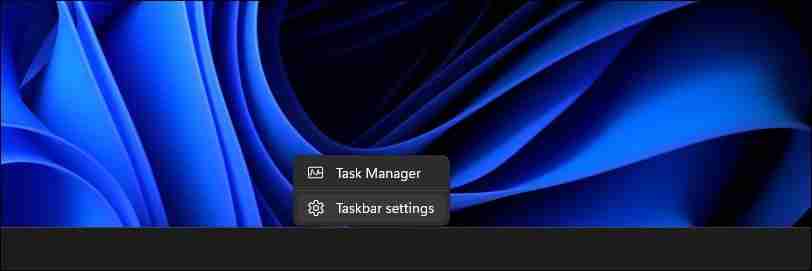
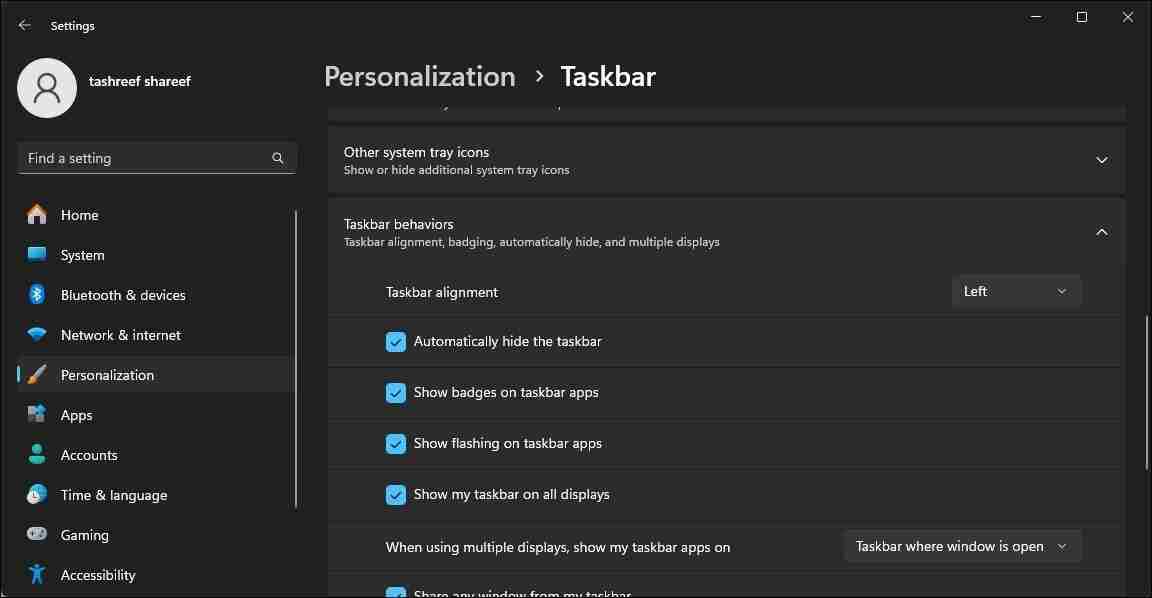
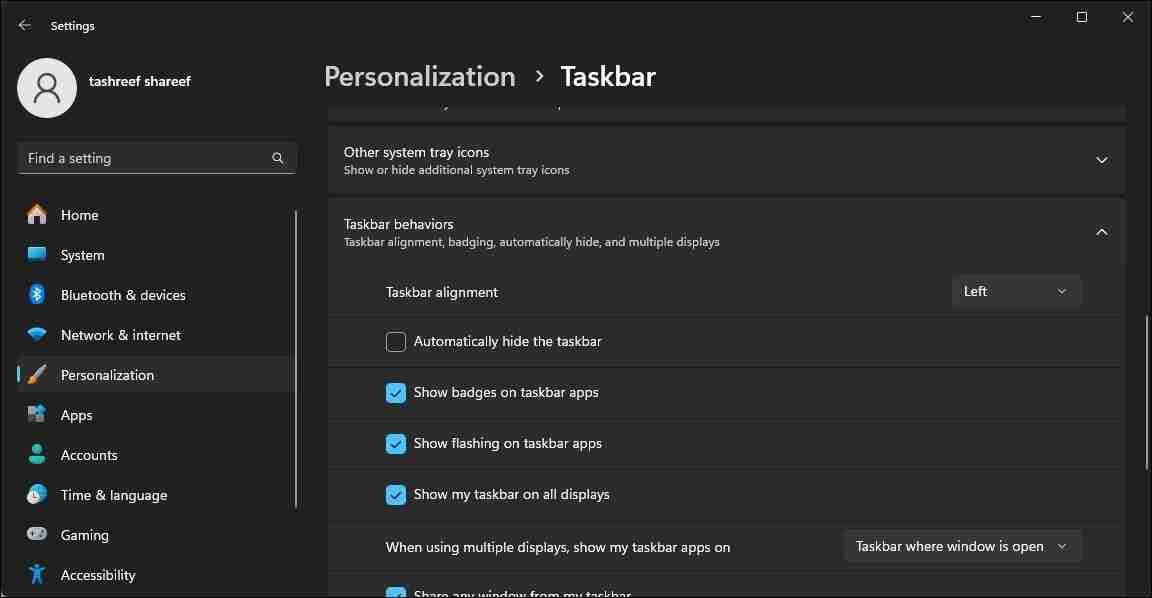
This will squeeze the browser window, display the taskbar at the bottom, and keeping this state will not cause further problems.
5. Check the zoom ratio of the display settings
If you are running a multi-monitor setup, make sure the display DPI scaling matches for both the primary and secondary monitors. By default, Windows may set different DPI scaling for different monitors based on display size and resolution.
You can change the display DPI scaling from the Settings application. In the "Scale and Layout" section, you may notice that one monitor is set to 125% and the other is set to 100%. To resolve this issue, you need to configure both monitors to use matching DPI scaling (100%).
6. Re-register Windows applications for all accounts
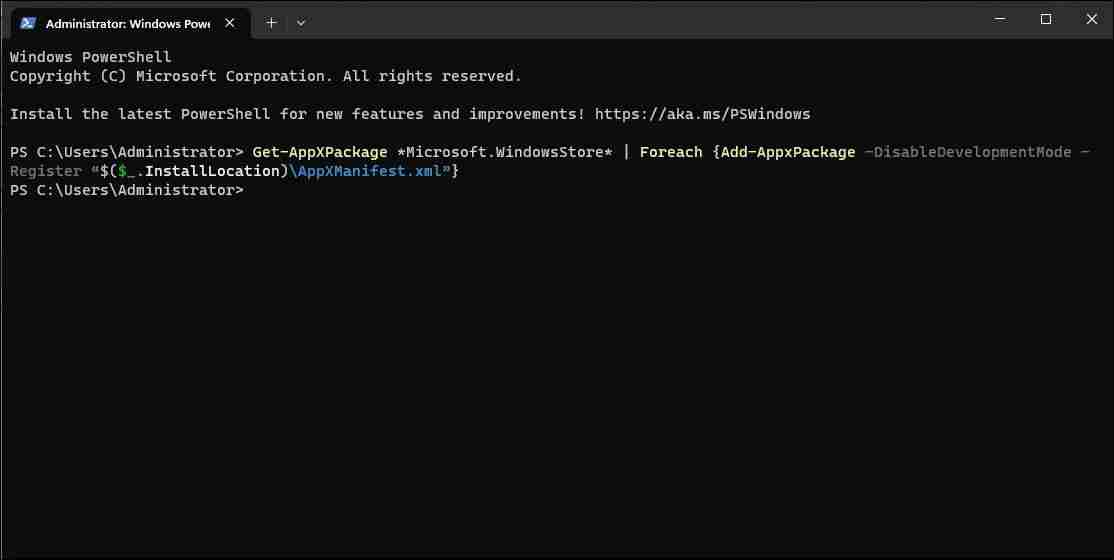
When the application is maximized, the failed taskbar may disappear. Re-registering built-in Windows applications with Microsoft PowerShell can help you resolve taskbar issues.
To re-register a Windows application for all user accounts:
- Press Win X to open the Quick Link menu Quick Link menu .
- Select Terminal (Admin) to launch Windows Terminal .
- Next, copy and paste the following command and press Enter:
Get-AppXPackage -AllUsers | Foreach {Add-AppxPackage -DisableDevelopmentMode -Register "$($_.InstallLocation)\AppXManifest.xml"} - After execution, the above command begins to re-register all Appx packages associated with the Microsoft Store application for all users on the computer. Ignore any errors and let the process complete.
Once done, you can use the browser in maximization mode and the taskbar is visible.
7. Check and install any pending Windows updates
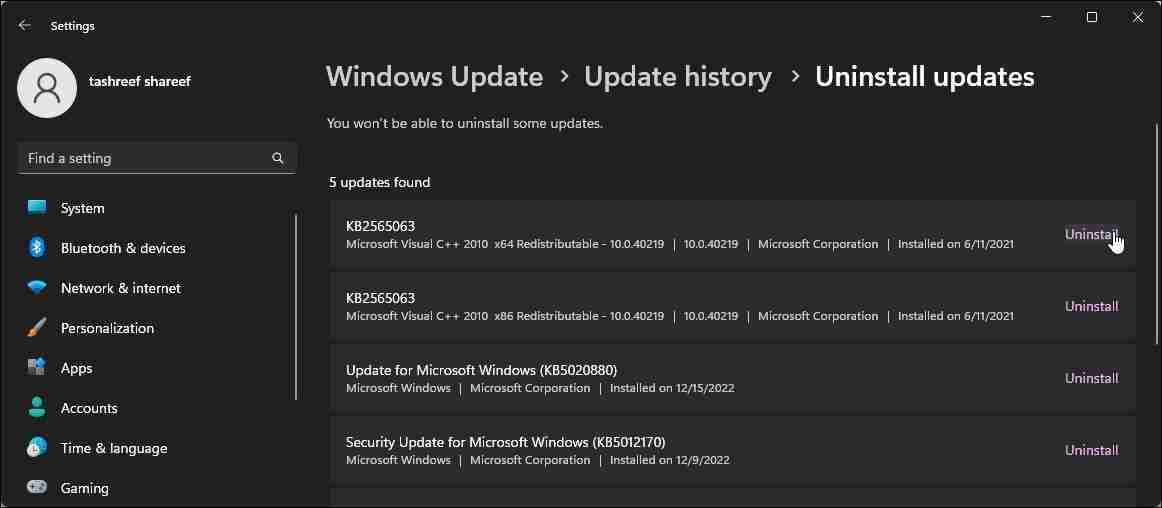
The latest Windows updates bring bug fixes and performance improvements. Since Chrome and Edge browsers update automatically, check your computer for any pending Windows updates and install it to see if it can resolve the error.
To check and install Windows Update:
- Press Win I to open Settings settings .
- Open the Windows Update tab.
- By default, Windows periodically checks for new updates and displays them in the Windows Update tab. If the update is not listed, click Check for updates . Windows will now start scanning for pending updates.
- If you find an update, click Install Now to download and install the update.
After installing the update, restart the computer to apply the changes and check for any improvements.
That is, if no new updates are available, check if the recently installed updates are causing the problem. Sometimes, errors in new updates can cause problems in some computers that require uninstallation to resolve the issue.
You can manually uninstall the Windows 11 Update Settings application from the following locations. After uninstalling, restart the computer and check for any improvements. If you are sure that the latest update triggers the issue, consider pausing automatic Windows 11 updates. You can pause the update for up to 5 weeks and wait for a patch to fix the latest issues.
Alternatively, use System Restore to undo the recent changes made to the computer by an update or application to see if this helps resolve the issue.
Show taskbar when Chrome or Edge is in maximized mode
When Chrome or Edge is maximized, the Windows taskbar does not display is a tricky problem. To resolve this issue, try changing the taskbar behavior to turn off automatic hiding, restart the Windows Explorer process, and even lock and unlock the device.
Recommended: What is a Linux configuration file
The above is the detailed content of How to fix hiding the Windows taskbar when Edge Chrome is maximized. For more information, please follow other related articles on the PHP Chinese website!

Hot AI Tools

Undress AI Tool
Undress images for free

Undresser.AI Undress
AI-powered app for creating realistic nude photos

AI Clothes Remover
Online AI tool for removing clothes from photos.

Clothoff.io
AI clothes remover

Video Face Swap
Swap faces in any video effortlessly with our completely free AI face swap tool!

Hot Article

Hot Tools

Notepad++7.3.1
Easy-to-use and free code editor

SublimeText3 Chinese version
Chinese version, very easy to use

Zend Studio 13.0.1
Powerful PHP integrated development environment

Dreamweaver CS6
Visual web development tools

SublimeText3 Mac version
God-level code editing software (SublimeText3)
 How to make PHP container support automatic construction? Continuously integrated CI configuration method of PHP environment
Jul 25, 2025 pm 08:54 PM
How to make PHP container support automatic construction? Continuously integrated CI configuration method of PHP environment
Jul 25, 2025 pm 08:54 PM
To enable PHP containers to support automatic construction, the core lies in configuring the continuous integration (CI) process. 1. Use Dockerfile to define the PHP environment, including basic image, extension installation, dependency management and permission settings; 2. Configure CI/CD tools such as GitLabCI, and define the build, test and deployment stages through the .gitlab-ci.yml file to achieve automatic construction, testing and deployment; 3. Integrate test frameworks such as PHPUnit to ensure that tests are automatically run after code changes; 4. Use automated deployment strategies such as Kubernetes to define deployment configuration through the deployment.yaml file; 5. Optimize Dockerfile and adopt multi-stage construction
 How to build an independent PHP task container environment. How to configure the container for running PHP timed scripts
Jul 25, 2025 pm 07:27 PM
How to build an independent PHP task container environment. How to configure the container for running PHP timed scripts
Jul 25, 2025 pm 07:27 PM
Building an independent PHP task container environment can be implemented through Docker. The specific steps are as follows: 1. Install Docker and DockerCompose as the basis; 2. Create an independent directory to store Dockerfile and crontab files; 3. Write Dockerfile to define the PHPCLI environment and install cron and necessary extensions; 4. Write a crontab file to define timing tasks; 5. Write a docker-compose.yml mount script directory and configure environment variables; 6. Start the container and verify the log. Compared with performing timing tasks in web containers, independent containers have the advantages of resource isolation, pure environment, strong stability, and easy expansion. To ensure logging and error capture
 Linux vs Windows: Which Operating System is Better for You?
Jul 29, 2025 am 03:40 AM
Linux vs Windows: Which Operating System is Better for You?
Jul 29, 2025 am 03:40 AM
Windowsisbetterforbeginnersduetoeaseofuse,seamlesshardwarecompatibility,andsupportformainstreamsoftwarelikeMicrosoftOfficeandAdobeapps.2.LinuxoutperformsWindowsonolderorlow-resourcehardwarewithfasterboottimes,lowersystemrequirements,andlessbloat.3.Li
 How to Schedule Tasks on Linux with Cron and anacron
Aug 01, 2025 am 06:11 AM
How to Schedule Tasks on Linux with Cron and anacron
Aug 01, 2025 am 06:11 AM
cronisusedforpreciseschedulingonalways-onsystems,whileanacronensuresperiodictasksrunonsystemsthataren'tcontinuouslypowered,suchaslaptops;1.Usecronforexacttiming(e.g.,3AMdaily)viacrontab-ewithsyntaxMINHOURDOMMONDOWCOMMAND;2.Useanacronfordaily,weekly,o
 How to install software on Linux using the terminal?
Aug 02, 2025 pm 12:58 PM
How to install software on Linux using the terminal?
Aug 02, 2025 pm 12:58 PM
There are three main ways to install software on Linux: 1. Use a package manager, such as apt, dnf or pacman, and then execute the install command after updating the source, such as sudoaptininstallcurl; 2. For .deb or .rpm files, use dpkg or rpm commands to install, and repair dependencies when needed; 3. Use snap or flatpak to install applications across platforms, such as sudosnapinstall software name, which is suitable for users who are pursuing version updates. It is recommended to use the system's own package manager for better compatibility and performance.
 The Ultimate Guide to High-Performance Gaming on Linux
Aug 03, 2025 am 05:51 AM
The Ultimate Guide to High-Performance Gaming on Linux
Aug 03, 2025 am 05:51 AM
ChoosePop!_OS,Ubuntu,NobaraLinux,orArchLinuxforoptimalgamingperformancewithminimaloverhead.2.InstallofficialNVIDIAproprietarydriversforNVIDIAGPUs,ensureup-to-dateMesaandkernelversionsforAMDandIntelGPUs.3.EnabletheperformanceCPUgovernor,usealow-latenc
 What are the main pros and cons of Linux vs. Windows?
Aug 03, 2025 am 02:56 AM
What are the main pros and cons of Linux vs. Windows?
Aug 03, 2025 am 02:56 AM
Linux is suitable for old hardware, has high security and is customizable, but has weak software compatibility; Windows software is rich and easy to use, but has high resource utilization. 1. In terms of performance, Linux is lightweight and efficient, suitable for old devices; Windows has high hardware requirements. 2. In terms of software, Windows has wider compatibility, especially professional tools and games; Linux needs to use tools to run some software. 3. In terms of security, Linux permission management is stricter and updates are convenient; although Windows is protected, it is still vulnerable to attacks. 4. In terms of difficulty of use, the Linux learning curve is steep; Windows operation is intuitive. Choose according to requirements: choose Linux with performance and security, and choose Windows with compatibility and ease of use.
 The Importance of Time Synchronization on Linux with NTP
Aug 01, 2025 am 06:00 AM
The Importance of Time Synchronization on Linux with NTP
Aug 01, 2025 am 06:00 AM
Timesynchronizationiscrucialforsystemreliabilityandsecuritybecauseinconsistenttimecauseslogconfusion,securityfailures,misfiredscheduledtasks,anddistributedsystemerrors;1.CheckNTPstatususingtimedatectlstatustoconfirmsynchronizationandserviceactivity;2






